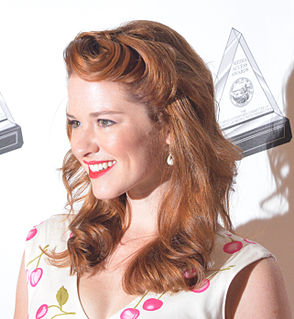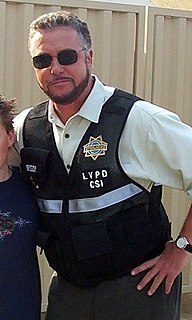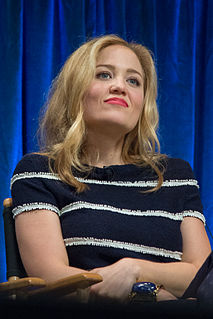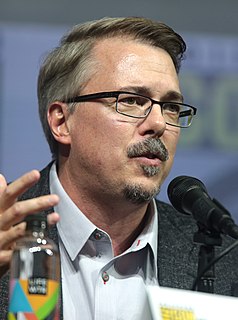A Quote by Ellen Barkin
The way Hollywood portrays mothers - you're either all good and saint-like, or you're all bad. And I think the real honesty of motherhood is not given a voice in movies. I miss that as an audience member.
Related Quotes
I do think Hollywood is recognizing that there's a craving for it, that there's a huge audience in our country. They want movies that they can bring their families to. They want movies that are going to speak to their heart, in a way that's refreshing to their hearts. And Hollywood is learning that there's money to be made there.
I'll say, what makes me happy about making movies is, every once in a while through movies we find a kind of honesty. There's an honesty in fiction that's as effective or even more powerful than the honesty of our lives. We can find something that's genuinely true, like a chemistry between people or a statement that speaks to an audience.
Mainstream Hollywood makes a few good movies a year. And in order to be in one of those, you have to be one of five people. Hollywood makes many bad movies too, which I'm not interested in being a part of. But there are only a few good independent movies a year, and many, many bad ones. I want to be in good movies, and I want people to see them.
The main thing is to do each project the way you want, and if they find an audience, that's terrific. And if they don't, there's nothing you can do anyway, so don't let it concern you that much. An awful lot of good movies have done badly and an awful lot of bad movies have done very well. There are no real rhymes or reasons for it. Sometimes the stars don't always align right. But if you've done the best you can, you feel pretty good about it.
All "bad" presentations struggle to keep the audience interested. The audience squirms wishing they could escape. The audience has given the presenter an hour of their life, so they want that hour to be useful. It's disrespectful of a presenter to not show up rehearsed and prepared with information and insights that will improve the lives of the audience in some way. Presenting will do only one of two things for you: it will either diminish your credibility or yield results. Most bad presentations hurt the presenter's credibility.
Television is a great job for a writer in the way that movies used to be, way before my time. Back when writers in Hollywood were on staff or under contract at any given studio and you'd write movie scripts and then the movies would get made within a few weeks, such that you could be a working writer in the movie business back in the '30s and '40s and '50s and have a hand in writing five or six movies a year that actually got produced. The only thing remotely like that in the 21st century here in Hollywood is working in the TV business.




































